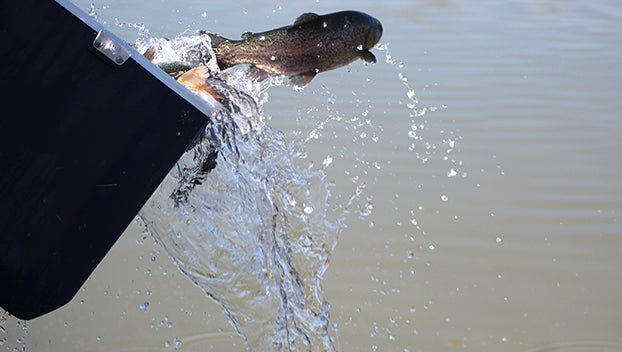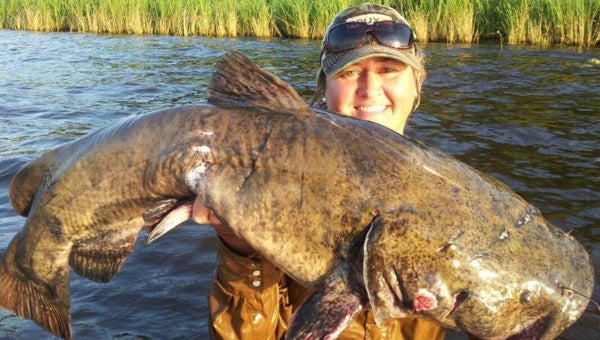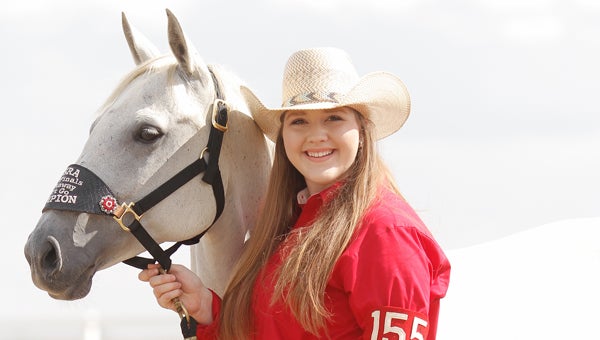Gearing up for Big Bass Challenge
Published 12:01 am Sunday, March 24, 2013
The sixth-annual Okhissa Lake Big Bass Challenge hosted by the Homochitta Heritage Club will cast off Saturday, April 6.
It has been very interesting directing an event on a new reservoir loaded with Florida bass over these past five years. Each year, the winning weights have predictably increased. This year, there is no telling what size bass we might see at the scales.
In early April, there is still some big sow bass loaded with body fat and eggs, so get ready to see some very large bass during this fun tournament. This “Bill Dance Signature,” 1100-acre Franklin Country reservoir has all the correct ingredients to grow trophy largemouth bass, huge bream and slab white perch.
As long as the current regulations and enforcement continues, Okhissa Lake will eventually have the potential to produce a new state record bass. The climate is right. The existing 18-plus-pound Mississippi record largemouth was caught an hour away at the Natchez State Park. The park lake is a small, 250-acre reservoir that was once a trophy bass fisherman and ladies paradise. People came from many states away just to fish the small lake at the park. I guided there for six years.
Okhissa fishes the same as the park lake. Okhissa Lake has the depth, channels, flats, timbered points and numerous feeder creeks and gullies that intersect with the flooded main creek, which is Porter Creek. Okhissa is so much like a small creek arm of Toledo Bend that I feel like I am fishing Toledo Bend when I’m on Okhissa Lake.
I spent years fishing and guiding on the 182,000 Toledo Bend reservoir in the 1970s and ’80s. Fishing Okhissa Lake this winter shook up some old found memories of Toledo Bend on a much smaller scale. Toledo Bend is massive in size. I could have sworn I was in Texas fishing Pala Gaucho on Toledo.
The Bill Dance Signature status, to my knowledge, means they built and stocked this lake to Mr. Dance’s specs as far as underwater structure and bass to catfish to bream to crappie stocking ratio. Bill Dance offers that service for a fee, of course. I do believe they stocked threadfin shad in the lake as well.
Of course the bream were the first to grow to eyeball popping size. Okhissa Lake is home to some giant bream but you have to fish a reservoir a lot different than a dish pan bottom oxbow lakes. Don’t go to Okhissa looking for a cypress tree or pier to pitch a jig at or drown a cricket by. For the most part, you’ll be fishing dead timber like hard wood trees and pine trees.
This is a federal reservoir with very strict enforcement, the way it should be. The property that surrounds the lake will remain in woods. That gives this lake even more potential.
Getting back to the sixth-annual Big Bass Tournament on Okhissa; this is a tournament format I created back in 1993 and drew 482 contestants to the first event. I sort of put a twist in the hourly payout events invented by Bob Sealy Big Bass Enterprise years prior. Instead of paying hourly, I went bi-hourly so contestants will have four weight periods to win cash money.
These big bass events are fun, and if you get on a roll, you can win multiple places all day. At day’s end, your single largest bass weighed in per weigh period moves into the top five overall, and that’s where the big bucks come in. The first weigh period gives you three hours to fish, which I think really helps.
There’s nothing worse than nailing a big bass early and leaving to go weigh, come back to the spot and people are sitting all over your area. That happens a lot. With three hours to fish it’ll give you time to boat more than one big bass early.
Weigh periods are 6 to 9 a.m., 9 to 11 a.m., 11 a.m. to 1 p.m. and 1 to 3 p.m. Based on a full field, we’ll pay three places per weigh period for a total of twelve places, and five over all places. The bi-hourly money looks like this: first place — $500; second place — $400; third place — $300.
The overall prize money: first place — $5,000; second place — $3,000; third place — $2,500; fourth place — $1,200; fifth place — $800. So for one hook set, you could possible win $5,500 for one fish.
Of course this payout is based on a full field, so realistically the largest bass will pay anywhere from $2,000 to who knows what. It all depends on the numbers entered, and this should be a big year for the big bass challenge. Contact me via e-mail or phone 318-336-5133 for more info. This one will be fun!




